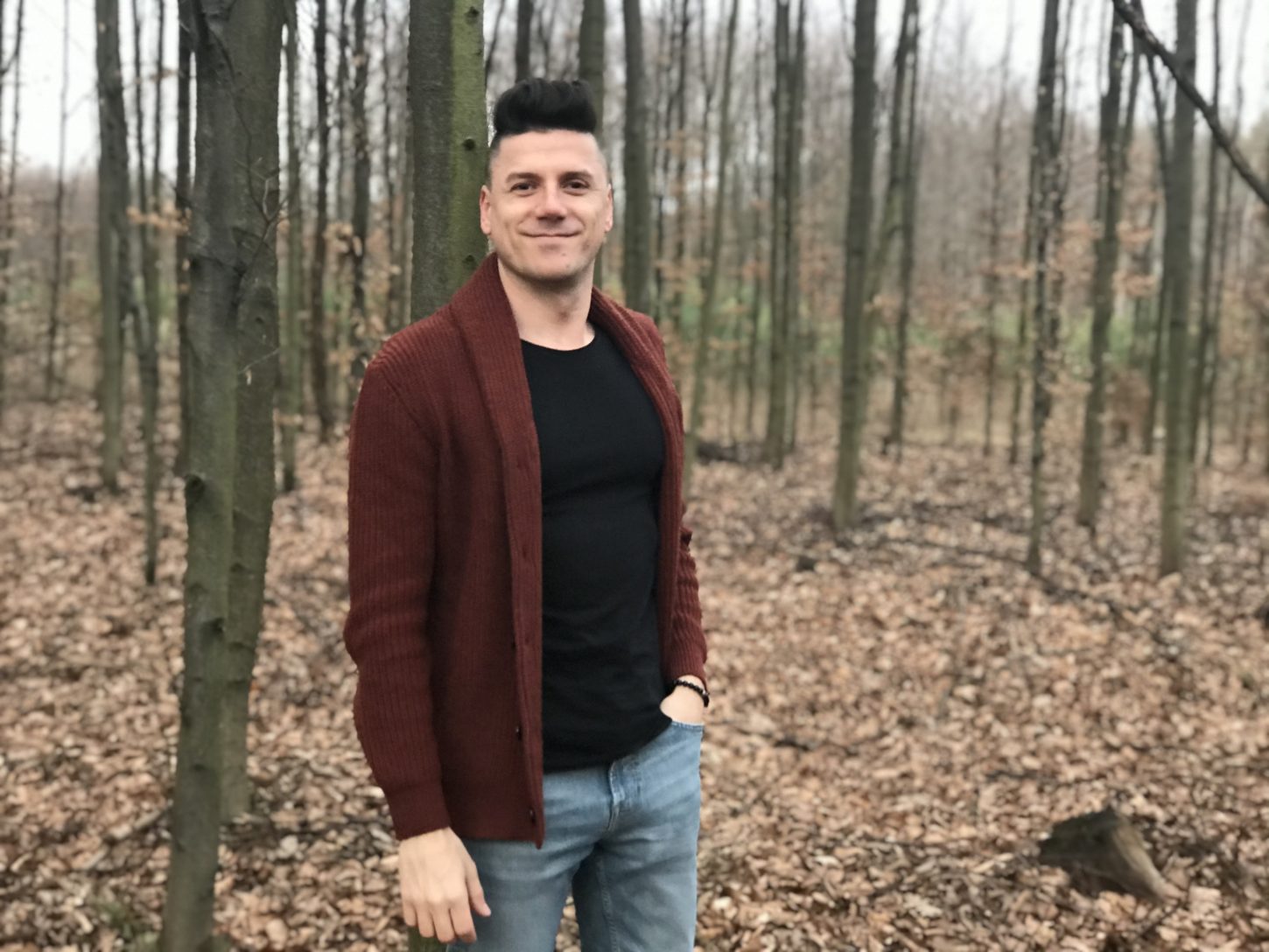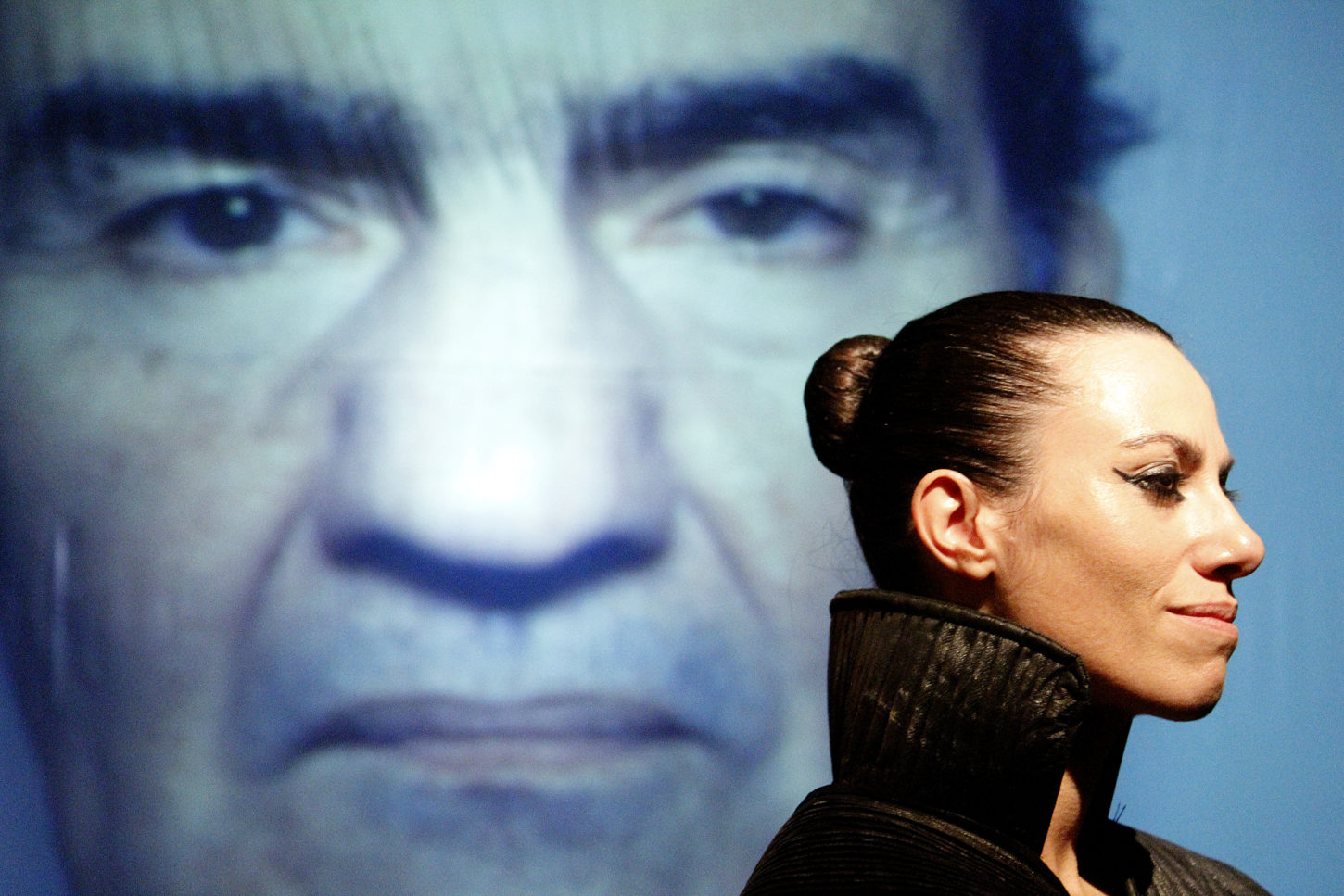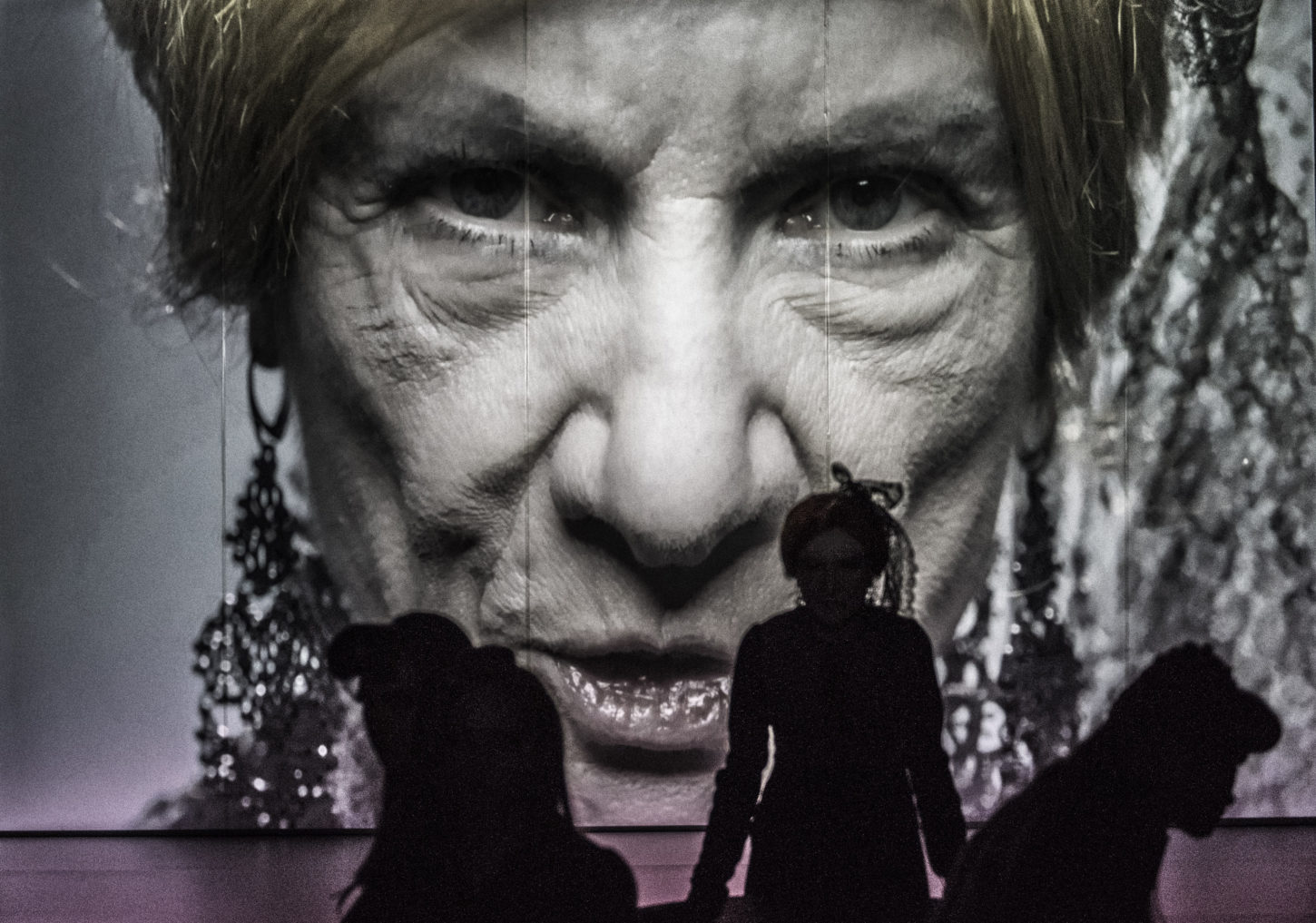RADAWSKI’S ANTI-SNOBIST DRAMATIC ART



Alejandro Radawski (1983) is a half Polish, a half Argentinian playwright and theater director, and lives in Kraków, Poland. He has Master’s Degree in Dramatic Arts from National University of Arts (UNA) and in Journalism from National University of Buenos Aires (UBA). Recently he premiered as theater director and set designer the play “Il clan” in Rome, Italy, at the theater Di Documenti. He currently works as a director and set designer at the National Theater of Poland (Narodowy Stary Teatr) in Krakow. His version of “The House of Bernarda Alba”, in Polish: “Dom Bernardy A”, in Poland was contreversially received. Why? He explained it an exsclusive interview with JL Interviews, directly from his house during the quarantine.
It is important to present some facts from Radawski’s past to understand how international and open-minded this artist is. In 2019 he won a playwright scholarship from the Bogliasco Foundation to reside in Liguria, Italy and a year before, he won the same from the Culture Association Nuoren Voiman Liitto to reside at Villa Sarkia in Sysmä, Finland. The same year he was invited as an artist in residence from Medea Electronique to reside in Koumaria in Sellasia, Greece. In 2016, he received the National Grant in theater of the National Fund of the Arts of Argentina to travel Pesaro, Italy where he had been investigated on the death of the architect Augusto Bartolucci and written the play:” The things that dance inside of me”. In 2015 he has won another playwriting scholarship from International Visegrad Fund to reside at Villa Decius in Krakow, Poland, where he wrote play: “The german that lives within me”. He speaks Polish, Spanish, Italian and English.
His latest publication is “Dramaturgia antysnobistyczna” [Antisnob dramaturgy]. He is also numerously awarded playwright: 1st Prize for “The negation” at III International Theatre Competition 2015 “genocide against the Armenians” – Argentina;1st Prize for “The gravediggers” at III International Theatre Competition “Carlos Aguilera” 2012 – Uruguay; Theatre Award Finalist “IX Ricardo López Aranda” 2011 – Spain; 2nd Municipal Prize for Literature “Osvaldo Soriano” 2009 for “Die of you” – Argentina. Witold Gombrowicz, Slawomir Mrozek and Wislawa Szymborska are the authors that made him who is now. Asked about his work, he said: “I think theater directors are like plastic artists who use ready-made elements for their creations, who combine all languages to create a play using other pieces”. His theatre is like himself – coragious, open to news, intelligent and experimental.
You are a Polish-Argentine theater director, poet and writer. Literature is your daily bread. Who, what text or author inspired you to love the theater for the first time? Which author do you read for pleasure?
Yes, literature is my daily life, reading and writing too. I have not watched nor have a TV (no series), nothing that is on a screen for more than 20 years. There are two authors who sparked my teenage interest in theater, they are Samuel Beckett and Tennessee Williams. For pleasure I read a lot of Witold Gombrowicz, Sławomir Mrożek, and Wisława Szymborska. They, I could say, are my points of reference.
Today critics call you “a man of the theater of the 21st century”. What kind of drama do you treat as author and director? What makes Radawski’s theater stand out? Is there more place in your theater for tragedy or comedy? Which of these two species is closer to you and why?
My point of view as a director is quite radical. There is a theater with whichI communicate and a theater with which I do not. That is my relationship with theater in general. There is a type of theater I do not like – it bores me, I call it “naif theater”, which is linked to forms, too snob, “cool” and now modern. It looks more like some kind of a dramatized reading than art. I think that this is a dead theater. The theater that I identify with is the one that takes risks, that puts things in danger, the theater that threatens, and for that, it is necessary to escape from literature. It is impossible for me to think about theater if not in a multidisciplinary way, a theater that plays with all languages, that is open-minded, that works with the actor’s body and not with words, the theater of emotions and not discursive. I think it is a personal search and my commitment to the theater and the idea of taking risks. It would be much more comfortable to do what many “renown” people of theatre do without taking any risks at the stage level. Their works are more like a dramatized reading than a theater play, where nothing is multidisciplinary. The only thing that happens is the repetition of a text written by actors who put certain tones to give nuances to the text, and thus, without taking any risk, abuse their power as a “name” and collect awards, criticism and applause. I could never do that! It would be a betrayal of my principles. I like to experience, all the time, with aesthetics, playing games, and juxtaposing languages that I have never merged before. I like to create without being tied to anything. I like to be free. Above all things, I love to flirt with the absurd. I think theater directors are like plastic artists who use ready-made elements for their creations, who combine all language to create a play using other pieces (text); using the works of other artists (costumes, scenery, lighting, music, etc.); manipulating the actors as puppets to do what they want. Everyone should always be on the same level. A chair is worth the same as an actor, the text is worth the same as a pair of trousers. For example, most people knows “Hamlet” by William Shakespeare, they know that there is a talking ghost, that Hamlet is a prince who must avenge the death of his father, that Ophelia commits suicide, and if they have a little memory, they even know how it ends. That is why, I think it is a really interesting thing to see “Hamlet” because it is to see the director’s work. That is the way I feel the theater.
From your publications one can see, you said that also before, your main point of reference are Polish authors such as Szymborska, Mrozek, Kantor, Konrad and Gombrowicz. They are the ones you put in theatre most often, you write mostly about them. Why, considering your double origins, don’t you pay as much attention to Argentine authors?
As my origin demands, I pay 50% attention to Argentinian authors and 50% to Poles. In my latest creation, I turned to Federico Garcia Lorca and works of my authorship. I think that these are moments, in which one goes through a certain identification with the environment surrounding him and the global socio-political problems.
What is the history of your bilingual family? How do you feel being a polyglot? You speak more than two languages. How this marked you and your vision of the world and, therefore, your way of writing and staging plays?
My family migrated from Tomaszów Lubelski to Argentina, and yes, I speak Italian, Polish, English and Spanish. Now, I am determined to add one more language, either French or German. Languages open up completely different worlds and visions of the things we had pre-conceived in one way, and that connects with all aspects of your life, the creative as well.
The Argentinian thinker, actor, author of musicals, Alejandro Dolina, said: “You cannot be an artist unless you have lost something.” If what he say is dogma, what have you lost becoming an artist? What void fills writing and creation?
The human condition is about that: time is our silent killer, our worst enemy. We are all going to die. Those of us who understand the finitude of life take refuge in art to try to change something, generate thoughts leaving a mark.
In Stary Teatr Narodowy of Modrzejewska in Krakow, You are currently exhibiting your latest work “Dom Bernardy A.” following Federico García Lorca. This terrifying, depressing song was a symbol of the author’s opposition to the tyranny of General Franco. Here, on stage, you showed tyranny against women. What is your opinion on this topic and tyranny? Did you survive something like that in your own skin?
That’s right, “Dom Bernardy A”, it has been shown for 2 years and every time that play is scheduled, the tickets are sold out in few days, against all odds and against prognosis of media and the press. Now I imagine the ulcer that this generates. I die of laughter while I eat popcorn, as if I were watching a movie in the cinema. I chose that play thinking and supporting the unwavering fight of feminism around the world. As a critic of the political situation in Poland without thinking that I would meet something creepy or unpleasant on the part of the adorable Polish journalists. Most of them are corrupt and are political persecutors. They claim to be on the left and hide the hammer on the right. Here, we have some poor idiots who claim to be journalists, but the way operate is cunning, dirty and corrupt, directly linked to ideology and right-wing governments, political persecution, fascism, media murders of those who do not belong to their circle, to their ghetto. This is not new. In any part of the world, there are independent media that always respond to political and economic interests. Political persecution harks to the time of the most staunch fascism, to the time of Bernarda Alba, when Franco ordered the murder of Federico García Lorca. I think I use them to exacerbate their hatred and their fascism, so that seeing them like that naked makes them laughable.
Which great Polish and foreign actors have you worked with so far? Who do you value the most? What new talent did you discover? Do you like working with the same actors often or for each new play seek new personalities?
Actors for me have the same value as illuminators, set designers, musicians, costumes and technicians. All of them fulfill a function of equal importance in my plays. To highlight the actors above the other artists, would be very unfair from my point of view so I don’t do that. In each play I discover great artists who fill me with pride and happiness. Well, some of them have left me with a bitter taste and disappointment.
Do you hold theater workshops in Buenos Aires and Rome? How do you temporarily reconcile such a long distance between these cities? What are you trying to tell your students? Who is your theater teacher?
Yes, I do, not only in those cities, also in Krakow, Kiev, Madrid, to name a few more. They are specific workshops on specific themes, and I gave creative writing workshops 5 years ago on streaming. I have had many theatrical teachers. In Buenos Aires I studied at the National University of the Arts and I took lessons in private studies abroad with various professors. I think that the mixture between the public and the private an artist’s training opens universes, and I have learned something, the best from each one.
The video original version is in Italian language.The play was showed in TEATRO DI DOCUMENTI, in Rome, Italy in 2018. Cast: Michelangelo Tarditti, Laura Sellari, Erika Janet Rinaldi, Alla Krasovitzkaya, Jet Hro, Eleonora Lipuma, Fulvio Foolofyou Sturniolo.
“Dom Bernardy A.” is Alejandro Radawski’s adaptation of the book by Federico Garcia Lorca. The original video version is in Polish languages and was recorded in Teatr Stary in Krakow, Poland. Cast: Ewa Kolasińska Bernarda, Alina Szczegielniak Angustias, Maja Wolska Martirio, Aleksandra Nowosadko Adela, Ilona Buchner, Iwona Budner Poncja.
A while ago you performed the play “Clan” in Rome. How was it received by the Italian public? When will you return to Italy or do another piece abroad?
“The Clan” was an incredible experience, one of those dreams for any director. I came from the hostility of Krakow after directing “Dom Bernardy A.” and I found myself in Rome with a human group of values and a commitment rarely seen before, all at the service of making the project shine. It was a healing and repairing project for me. In a beautiful place such as the Teatro di Documenti, and managed by an excellent group. The Italian public accepted the project with great enthusiasm and, as usual, criticism accompanied and praised the work, not like the Polish critic that tried to discredit me and the work Dom Bernardy A. I have been directing for 12 years, I have directed more than 25 works worldwide, and nothing negative has ever been published about my work. Only the machinations and maneuvers of journalists come back home. Before the quarantine I had a project to go to head in Rome during the summer, another in Berlin, a residence for writers in South Korea and some projects in Kiev, everything has been postponed. I hope we will all enjoy again soon the theatre.
You have lived in Finland. How did it happen? Did you learn Finnish? Are you planning to stage art in the extreme north?
Yes, I have lived in Finland too. There I was in an artistic residence for writers, where I started writing a trilogy about massacres in my country, the first work is about the Katyn Massacre, the second about Jedwabne and the third about Lwów. Obviously, I’m in talks to work as director in Finland, I hope that after this pandemic it can materialize.
Your last book has a fairly specific title, “Anti-Snobista Drama.” What does this mean? What are the snob and antiesnob arts? In how many languages have these publications been translated? Are you already planning another book?
It is my fifth book, it is 650 pages long and is the first one to be published in Polish, in Poland. Now, the second one that may go on sale in early 2021 is being prepared. Ii was translated into Italian and Armenian. As for the title, it is a criticism of our theater. Paradoxically, in Polish theater there is installed in certain theater circles a strong snob current, the theater of ideas, clearly snobbish ideas, pretending to be witty and doing anything on stage, as if that was creative, as if anything is something to be proud of. On the contrary, it is pathetic and embarrassing. Likewise, I think that a snob performance is an attack on the theater, destroys it, merges it with literature and turns it into a reading. The emotional field is vitally important, it is a circuit of extraordinary and direct exchange, it is not about crying, but a need to transmit certain energies and tones with which dramatic situations become affirmative, otherwise the performance unfolds painfully towards an ironic and distant edge, where the affirmative signs of the performance do not emerge, without the truth and conviction of what is being done one begins to feel that a false “as if” is being peformed, as if it were something shameful, as if it were shameful to be sad in our country.
Have you had the opportunity to meet the contemporary theater artist, Roberto Cossa? I remember him, not only because he is Argentinian, but also because of a work titled “Nobody remembers Frederique Chopin anymore”. Has this art affected you in any way?
Yes, certainly I know Roberto Cossa. I know him in person. In fact, on February 21, 2020, I premiered my play “El aleman que habita en mi” at his theater, the Teatro del Pueblo, in Buenos Aires. The work deals with Alzheimer’s and I wrote it, here, in Krakow, in the artistic residence for Polish writers in 2015 with a grant from the International Visegrad Fund to reside in Villa Decius, and it is the work that opens the book I published here in Poland. Roberto Cossa and his writing have marked a path for all the generation of playwrights who were born under democracy (after the last Argentine dictatorship). He is a teacher, a reference and a guide for us all.
Written by Joanna Longawa
Photo cover and main portrait by Urszula Barmuta @ Photos from Teatro Argentina by Carlos Alberto Garcia & Sara Vega @ Photos from Teatr Stary by Magdalena Hueckel










Dwighttus
На этом сайте вы сможете найти лучшие витамины для улучшения работы мозга. Выберите подходящий вариант, который способствует повышению концентрации.
https://chance4lr6p.bloggazzo.com/31354669/В-витамины-для-мозга-Дневники